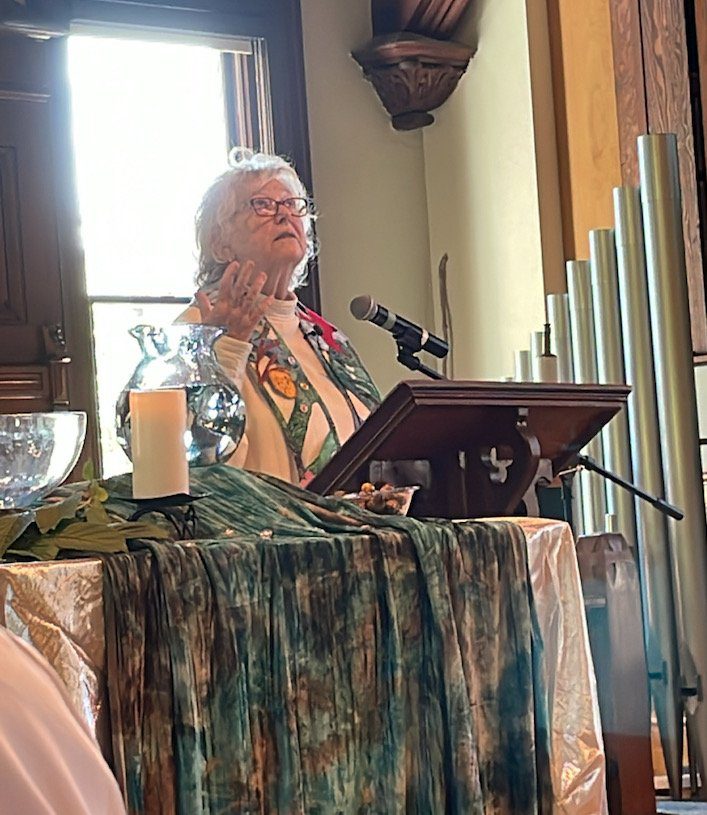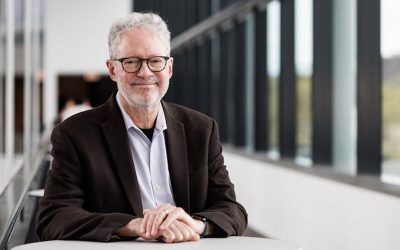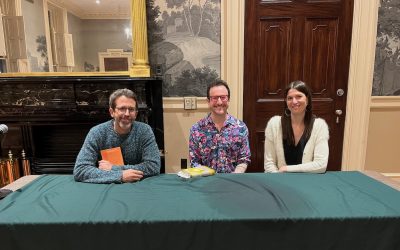The two-day event honored the legacy of the Rev. Dr. Kenneth Rowe C’59, T’69
Enlarge

October 2022 – Drew Theological School hosted the 2022 Tipple Lectures. The events honored the legacy of the Rev. Dr. Kenneth Rowe C’59, T’69, who served as Methodist Librarian at the United Methodist Archives and History Center and Professor of Modern Church History at Drew Theological School for 32 years.
After a postponement of several years due to the COVID-19 pandemic, the typically annual event returned with a service of death and remembrance of the renowned librarian, bibliographer, editor, historian, and scholar.
Under Rowe’s leadership, the United Methodist Archives and History Center, located on Drew’s campus, became one of the premier centers of United Methodist research in the world. His scholarship placed Drew as the premium university for studying United Methodist history.
Rowe reshaped how we understand the narrative of Methodism in America, expanding it to include indigenous persons, women, and LGBTQ+ persons.
Remarks, words, and scripture readings were shared by Theological School Dean Edwin David Aponte, Associate Dean for Vocation and Formation Tanya Linn Bennett, and Associate Professor of American Religious Studies J. Terry Todd. A moving naming was presented by Rowe’s husband, James Sawyer.
Enlarge

Preaching the memorial and service of the reaffirmation of baptism was the Rev. Dr. Heather Murray Elkins, professor emerita of worship, preaching, and the arts, with her sermon “By Water and the Word.”
Holding an acorn in her hand, she said, “This is so very Ken Rowe,” explaining the transformation both acorns and Rowe have made in The Forest. “He shared his knowledge as generously as these oaks shower us with acorns.”
“Rooted. Innovative. Courageous. That’s a very good description of the man we’re remembering here today,” said Elkins.
Following the service, in-person attendees were invited to an open exhibit, “Splits, Separations, and Reconciliations: Rooted in Wesleyan Grace,” at the United Methodist Archives and History Center.
The event concluded with a Tipple keynote lecture from Ashley Boggan D. T’17, general secretary of the General Commission on Archives and History, “(Vile) Foundations of our Past.”
Her talk was a delve into the early history of Methodism and John Wesley’s adaptation to be more “vile” in Bristol—reflecting his then radical decision to preach in the fields “to meet people where they were,” rather than within the walls of the church.
Boggan expressed caution with the Methodist Church’s decision to choose vitality over “vile-tality.”
“At the root of our various and numerous disagreements, I would argue what we are debating is vitality versus vile-tality,” she said. “Are we a vital church that has the most numbers, the biggest budget, and can therefore make the most fiscally measurable difference in the world? Or, are we the church that dares to be vile? To recognize its own faults, to name its own harms, and dare to learn from those?”
Rowe was “prophetically vile,” said Boggan. “He was one of the first Methodist scholars to take an interest in women’s history, indigenous history, and an honest assessment of the anti-Black racism present in our denominations. He’s one of the first scholars to call for queer inclusion in our history.”
“And he did all of this before it was front page or headline news prompting an inquiry.”


